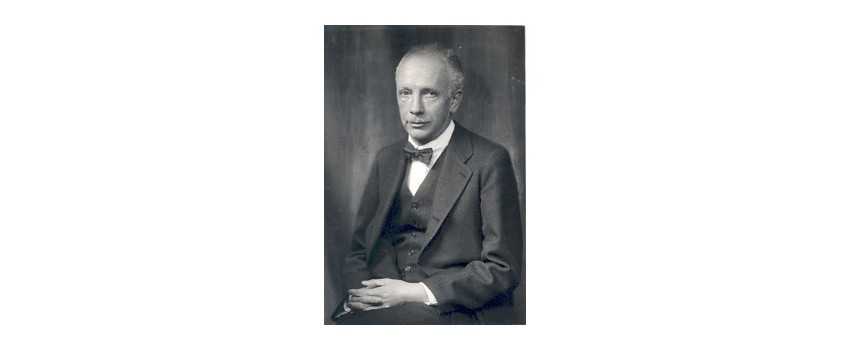Strauss Sonata In E Flat Major Op 18 For Violin (Kalmus)
Strauss, Sonata in E flat major Op.18 for Violin (Kalmus)...
Richard Strauss, a renowned German Romantic composer, left an indelible mark on the world of classical music in the late nineteenth and early twentieth centuries. With a prolific career spanning symphonic poetry and operas, his compositions have become mainstays in the mainstream repertoire.
Early Life and Musical Upbringing
Born on June 11, 1864, Richard Strauss hailed from a musical family. His father, Franz Strauss, held the esteemed position of principal horn player in the Munich Court Orchestra, establishing himself as Germany's leading horn virtuoso. Richard's mother, from the venerable Pschorr brewing dynasty, provided a rich cultural backdrop to his upbringing.
Richard Strauss showed immense talent and dedication to music from a young age. By graduating high school in 1882, he had already composed over 140 works, including 59 lieder (art songs) and various chamber and orchestral pieces. These early compositions reflected his musical upbringing under the guidance of his father, who held a deep admiration for classical works and a disdain for Richard Wagner.
The Path to Conducting
Richard Strauss's journey as a conductor began to intertwine with his blossoming career as an artist. Through his father's connections, he encountered influential musicians of the time, including conductor Hans von Bülow. Bülow recognized Strauss's potential and commissioned him to compose the Suite for 13 Winds for the Meiningen Orchestra. Under Bülow's guidance, Strauss conducted the debut performance of the Suite in Munich in November 1884.
Impressed by Strauss's conducting abilities, Bülow offered him the role of assistant conductor at Meiningen. This opportunity marked a significant milestone in his ascension as a conductor. Subsequently, Strauss held esteemed positions such as the third conductor of the Munich Opera (1886–89), director of the Weimar Court Orchestra (1889–94), and principal conductor in Munich (1894–98). His talent and dedication propelled him further, eventually leading him to become the artistic co-director of the Vienna State Opera (1919–24).
Musical Evolution and Collaboration with Alexander Ritter
During his time in Meiningen, Richard Strauss encountered Alexander Ritter, a pivotal figure in his musical evolution. Ritter encouraged Strauss to break free from classical conventions and embrace a new musical expression, similar to Franz Liszt's symphonic poems. This marked a turning point in Strauss's compositional style.
Strauss embarked on a journey to master this new musical form, with his "symphonic dream" titled "Aus Italien" (From Italy) serving as an important milestone. It depicted his first visit to Italy, capturing the essence of the country through symphonic storytelling. In 1889, he premiered his groundbreaking symphonic poem, "Don Juan," which catapulted him to acclaim as Wagner's successor and marked the beginning of his remarkable compositional career.
Love, Marriage, and Artistic Success
1894 Richard Strauss married Pauline de Ahna, his former singing student. Despite their contrasting personalities, their union proved powerful and successful. Pauline's temperamental and blunt nature starkly contrasted with Richard's aloof and detached demeanour. However, their deep love for each other transcended their differences, and they spent the rest of their lives together.
During this period, Strauss composed two of his most optimistic tone poems: "Don Quixote" and "Ein Heldenleben" (A Hero's Life). Premiering in 1898 and 1899, these works showcased his mastery of orchestration and storytelling. In 1904, Richard and Pauline embarked on a tour of the United States, where he received critical acclaim for his "Symphonia Domestica" in New York City.
The Operatic Triumphs
Both controversy and triumph marked Richard Strauss's foray into opera. In 1905, his opera "Salome," based on Oscar Wilde's play, caused a stir with provocative themes. While Vienna's censor forbade Gustav Mahler from staging it, "Salome" succeeded in many leading opera houses worldwide. This began Strauss's collaboration with Austrian poet and dramatist Hugo von Hofmannsthal.
Their partnership flourished with the premiere of their second opera, "Der Rosenkavalier," in 1911. This comedic opera became a massive mainstream success, solidifying Strauss's reputation as a master composer. The duo went on to create several more operatic masterpieces, including "Ariadne auf Naxos" (1912), "Die Frau ohne Schatten" (1919), and "Die ägyptische Helena" (1928).
Tragically 1929, Hugo von Hofmannsthal passed away while working on the opera "Arabella," leaving Strauss devastated. Despite this loss, Strauss continued to compose and dedicate himself to his craft.
Challenging Times and Legacy
As the political landscape shifted in Germany, Richard Strauss found himself entangled in the complexities of the Nazi regime. His position as the president of Germany's Reichsmusikkammer from 1933 to 1935 brought praise and criticism. However, as the Nazi government tightened its grip, Strauss's name became tarnished due to his political naiveté.
Strauss's collaboration with Jewish dramatist Stefan Zweig on the comedic opera "Die Schweigsame Frau" angered the Nazi regime. The opera was eventually forbidden, and Strauss was forced to collaborate with a non-Jewish librettist, Joseph Gregor. The fact that his son's partner was Jewish further fueled the regime's hatred towards him.
Throughout World War II, Strauss sought solace in Vienna before eventually moving to Switzerland in 1945. Allied denazification tribunals finally cleared his name, recognizing his contributions to music. In 1949, three months after celebrating his 85th birthday, Richard Strauss passed away in Garmisch, Bavaria.
Conclusion
Richard Strauss's musical journey was of immense talent, artistic exploration, and a deep commitment to his craft. From his early influences under his father's guidance to his rise as a renowned conductor and composer, Strauss left an indelible mark on the world of classical music. His symphonic poems and operas continue to captivate audiences, ensuring his enduring legacy as one of Germany's greatest composers.

Strauss, Sonata in E flat major Op.18 for Violin (Kalmus)...
Voices of Spring (Peters) Composed by Johann Strauss, for Violin and Piano